Daley Downing's Blog, page 44
May 16, 2017
Reading Slumps

What’s a reading slump? Only the most terrible thing in the world, ever, for a bookdragon. And yet, they are inevitable. Every now and again, you’ll realize that you just don’t feel like reading anything.
Your usual styles/authors/subjects just aren’t sparking interest. You feel terribly bored, or let down by a genre, or you simply crave something different, yet every new book you take a look at feels destined to fall flat.
Now that I’ve struck terror into the very depth of your souls…
Here are some ideas on how to get through a reading slump.
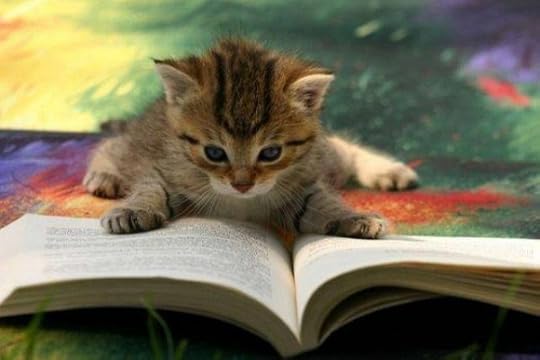
Don’t push yourself too much. If you feel like you should be reading, there’s simply no need to feel that way. A major reason I’ve decided not to do ARCS is because I don’t want to be on a deadline and not inspired to read the work in question. Even as an author, someone who relies on volunteer reviewers getting a critique out in a timely manner, I still totally support bloggers who choose to limit the number of ARCS they include in their schedule.
Try something outside of your usual loves. If you tend to gravitate towards contemporaries, pick up a historical fiction. Not sure if steampunk is your thing? Give it a go. Never read a James Patterson or a Kristin Hannah? It’s what the library is for.
It’s actually okay not to read anything for a bit. Yes, you heard that right. If you go for a few days, or even a few weeks, without finishing that novel on your shelf that you started last year, truly, the world will not end, I promise.
Attempt a re-read. Not sure anymore what happened in book 5 of Harry Potter? Book 3 of Percy Jackson? Do you have Me Before You or A Monster Calls marked as “read it” on your Goodreads account, but you’re honestly not sure if you’re just thinking of the film versions now?
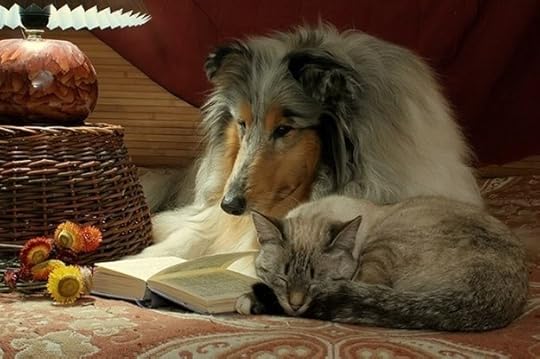
Now, what about this dreaded prospect?: You’re a book blogger, so putting new content on your site kind of makes it necessary that you read new stuff. Well, in the event of a reading slump, I have you covered there, too.
Find a related topic to discuss. Like a trend in publishing that bugs you — like if there are dystopias everywhere, or road trip novels, but you’d really prefer to see an uptake in pirate stories or new sorts of mythological/legend re-tellings.
If you like to do tags, catch up on a few of those. Or join a weekly theme that doesn’t rely on recently completing a new read. Top 10 Tuesdays are usually good for this, because the theme often relates to books you’ve already finished.
Consider reviewing a book you read a long time ago that you decided not to review before. Maybe because it was a novel outside of your usual genre, or was it a biography, or a collection of poetry? There’s no rule about the type of reading we “have” to be reviewing.
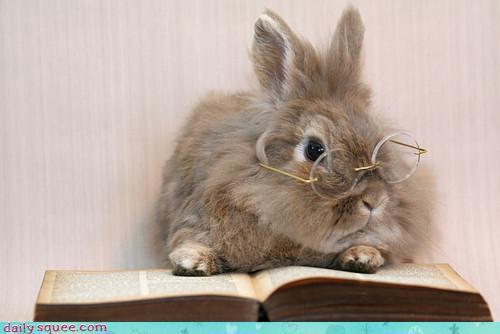
The most important thing to do is: don’t panic. It really is all right — and probably natural — to hit a reading slump. And it happens for all kinds of reasons — whether your life is busy, or the latest publishing trends just aren’t your thing, or even looking at a towering TBR makes you go, “Meh.”
One day, this will be over. I promise.



May 15, 2017
The Indistinct Howls and Grumbling Edition
[image error]
Seriously, this is what you people most want to read about? Well, I guess I asked for it when I included it as an option in the latest Twitter poll… But, sigh… And, well, I suppose this post is off to a good start.
Here’s what I’ve been grumbling about lately:
Muffin has been bingeing Dreamworks movies, particularly How to Train Your Dragon and the Ice Age series. He is presently obsessed with dragons. (I can hear some of you applauding his good taste.) I love dragons, too, and Ice Age. But every once in a while, it would be really nice for him to stop interchanging the discs at a nearly frantic pace, and watch something else for a little bit, maybe…
My writer’s playlist has run dry, feels hackneyed, and my ears are tired of it. Not that I’m never going to listen to any of these songs again. It’s just that, right now, I want something different, and I’m rather finnicky when it comes to selecting stuff like music…
I can’t seem to finish my tea while it’s still hot. It used to be mostly because of children, but nowadays it appears to have become its own thing. Groan…
[image error]
Work is progressing on Volume 2. Some of that results in lots of mumblings and complaints to self and the occasional howl…
I’m practically stalking my Goodreads page, hoping for amazing stats on Volume 1. It is being well-received, and there are some impending reviews which I know are going to be good. More than 170 people have entered my Goodreads giveaway (which ends Wednesday), and for a debut author, this is truly incredible. I guess I’m a little worried about this planing off, though, and that definitely results in howling…
I’ve hit a reading slump. I’ve knocked everything new off my TBR, except for Dawn of the Clans, which I don’t feel like starting right now. None of the new releases this spring are grabbing my attention, and this is generating a vaguely unsettling feeling…
The season finale of Riverdale was last week. This is now one of the only TV shows I regularly watch. Honestly, I don’t mind having to wait for the new season, I’m not 12. But the realization hit me that by October, by the time all the new episodes will be premiering, a whole lot will most likely be different in my life…
[image error]
Muffin will be starting preschool by the fall, if not before. While this is all good, because he’ll be able to receive all his services in one place, and I’ll certainly have more time to write, or even think about going back to teaching dance, it still means a big upheaval in our daily lives. That creates howling for a bunch of reasons…
As I think about the future, the fact that White Fang will be in high school in September is also not far from my mind. WHAT. HOW. DID. THIS. HAPPEN. I swear he was Muffin’s age just last month. Okay, it was more than 10 years ago. I am old. More than that, I just… How did he become so much his own person, who has this mind and personality and life that I’m learning about as we go — rather than being the expert on my small child? Because he grew up and discovered who he is and what he’s into, that’s why — and isn’t that what I tried so hard for over a decade to achieve? Insert wolf impression here…
My husband finally started reading Volume 1. Yes, it is among the great ironic moments of my life that some of the last people to read my first release are my immediate family. But the reason this is so momentuous for me is because my husband does not read fantasy or speculative fiction at all. (He once picked up a Frank Peretti novel circa 1995, and never finished it.) I’ve had to explain to him what a TARDIS is, that “faery” is a correct spelling, and the significance of Shroedinger’s Cat. He is so not a geek. Anyway, the fact that he got through the Prologue of Volume 1 and said, “This is really good!”, has intense personal meaning.
A-owwwwwwwwww…
[image error]
There are also some big personal things happening for a few people I know, and this gets to me, because I want to be able to help, and in some instances, I just can’t. Either I don’t live close enough, or it’s not my place to step in, and there’s really not much I can do other than stand back and watch developments unfold. I am a do-er, I like to participate in situations resolving, and know that it’s all going well. Especially when it concerns people I care about. So this is a tough bit.
A-owwwwwww…
Anyone have time to post a glowing review of Volume 1 to make me feel better?
[image error]


So, You Want To Be A Book Blogger

Note: Do not ask me for tips on origami. I borrowed all these photos from the internet, and I do not make any animals out of paper.
So, being a book blogger is now a thing. If you’re a reader/fangirl/fanboy, blogging about it means a big community (where geeks can all band together to take over the world), where you can find like-minded souls to share the hype and the flops and the overall love for books. It is good.
However, like with all good things, humans tend to forget that “in moderation” is really the best motto for life, and now book blogging is developing its own issues. For example, the “echo chamber” — meaning we all seem to be getting excited about and promoting the same authors and series. And the very sad notion that if someone disagrees with your review, they need to be strung up by their thumbs. Truly, this is not the sort of environment we should be cultivating.
So, here’s my advice for those of us just starting out in this interesting internet culture.
Along with creating the design/layout for your blog, plan which social media sites to join and how to link them to your own site. Of course, you hope that this will be fun. But, realistically, it’s just as much fun to see your stats go up, and know people are experiencing your content. So, after you place posts on your blog, you need to let folks know it’s there. One of the best things I did for boosting The Invisible Moth’s visibility was to join Twitter. Lots of book bloggers really like using Instagram or Facebook as well.
A personal note on social media: You don’t have to do all of it. Find the sites that you feel are easy to use, have a community you’d like to be a part of, and connects others to what you want to share the most.

Choose which sort of books you want to review most, but let yourself break the mold every now and then. If you mostly read fantasy, it’s totally fine to build your foundation on fantasy fiction. But if there are certain classics or fluffy romantic contemporaries that just really stir your soul, feel free to share those with your readers, too. After all, it is your blog.
Having a posting schedule helps, but it’s not necessary. In my experience, declaring that you will, without fail, be posting every Monday, Wednesday and Friday is not realistic. Things happen. You’ll get sick, go on vacation, misplace the charger to your laptop, need to make an emergency trip to the vet…and your post won’t get uploaded that day. And nothing’s wrong with that.
Don’t feel compelled to only read the hot new releases you see “all” the other bloggers featuring. Last year, I realized that there’s a big problem within our community — I’ve read other posts that refer to it as “the echo chamber syndrome.” Indeed, it seems that there aren’t just 4 or 5 people discussing the new Cassandra Clare/Rick Riordan/Nicola Yoon/Marissa Meyer publication, these are the only discussions going on anywhere, and “everybody” loves them without any dissent. Hey, guys, I’m sorry, but there are plenty of other books out there to read, and if you just don’t care for a novel/series that the majority of your community seems to adore, that’s really okay as well.

Doing tags or challenges is optional. Honestly, I’ve given up doing these, as well as weekly themes, because I simply don’t have the time, and I’d rather be someone who posts discussions/topics I came up with on my own. There’s no right or wrong; a lot of newcomers feel it’s expected of them after another tags or links them. You can if you want; but most bloggers won’t hold it against you if you opt out.
Don’t feel bad if you hit a reading slump, or aren’t sure what to review this week, or even just want to hide from the world for a while. The great thing about maintaining an online presence is that you control how much of it is in your life. Sometimes bloggers need to take a break (the local vernacular is “on hiatus”), either because physical life is requiring your online stuff to take a backseat, or you’re just not feeling the posting/tweeting/instagraming vibe. And all of that is just fine.
Most of all, keep it fun. Unless you’re one of the rare breed who’s being paid to blog, you’re here for fun, so it needs to stay that way.
Having a platform to share my thoughts on things that are close to my heart has been very rewarding. But a major part of what’s made it worthwhile is all the super-supportive feedback and conversation I’ve received from the visitors to my site. That’s what makes this ongoing project really special.



May 14, 2017
How to Choose a Genre for Your Book

So, you’ve written a novel. And survived to share the news! Congratulations! What next? Are you hoping to share it with others? Okay, go for it — self-publish or put it on Wattpad or something. Now, here’s the really hard part after writing and editing — marketing.
What’s the hardest part of marketing? “Tell me what your book is about.”
Many indie authors I see around the blogisphere have compared writing a summary of their novel/series with being tortured, suffering through a prolonged illness, or feeling that their very soul has been ripped out and displayed to the whole world.
In other words — it seems so easy (to the naive general public), but deciding what your novel is “about” can be almost impossible.
Here’s a major reason why — selecting the genre it belongs to. Genres are something apparently contrived by publishers to torture writers. “Genre” means a category. Humans love to put things in categories. But writers find “genre” a bit tedious, because, honestly, really good stories don’t follow a checklist of standards; they cross borders and fall into more than one genre. We often don’t like feeling limited by sticking to the expectations of a category.

So, here’s how to decide which genres your novel falls into:
Consider the major elements of the story. Is the focus of the plot on solving a crime? (mystery) Is it set in outerspace? (science fiction) Does your world include inhabitants such as dragons, mages, and talking horses? (fantasy)
But do think about things like setting and premise as well — Is your sci-fi novel actually set in Victorian London? (historical fiction and steampunk) Are your characters solving a who-done-it they stumbled over on their honeymoon? (romance) Has your Narnia-inspired Earth actually come to be after a post-armageddon event circa 2234? (dystopia)
Don’t worry one bit about writing in more than one genre. Nowadays, readers are hungry for less-formulaic fiction, and the industry is catching on. On Goodreads, my first publication is listed under fantasy, YA, and contemporary, because yes, it’s about faeries and mythology, but it’s set in present day, and the target audience is ages 13 and up. You’ll actually reach more potential readers by writing a historical fiction murder mystery, or a dystopian romance.
Above all, stay true to the voice of your story. This is the most helpful “professional” advice I’ve received on writing. Stop worrying about what your novel “should” be in terms of trends or what your favorite authors are currently producing. Concentrate on the story you’re telling. If you just know it has to be a contemporary, or has to be fantasy, to properly explore the growth of the characters and who they’re meant to become, then stick to it.

How to determine the age classification. This simply means, who’s it for? Is the intended reader an adult, a teenager, or a kid? And how you reach this conclusion should not be based on the age of the narrator or the protagonist. For example, The Book Thief and The Hunger Games are labeled juvenile fiction, purely because the narrators are very young, but the content and the subjects within those pages are very, very serious and not easy for juvenile minds to comprehend. It may actually be harmful for people under the age of 16 to read such books. The same with the Throne of Glass series, which you’ll find on sale or in the library next to Harry Potter and Percy Jackson, but has explicit sexual references.
(Go back to step one: Staying true to the voice of your story.)
As a parent, I really wanted to write something that I’d feel comfortable having my own kids read — now, not when they’re adults. For a few years, I toyed with the idea of making my series NA (new adult, ages 18 and up), but eventually I decided to make it YA (and a solid YA, acceptable for middle-schoolers to read). But there’s plenty for older teens and even adults to enjoy. My content is pretty conservative, so for adults who don’t care for tons of violence or sex or swearing in their fiction (like myself), there’s still adventure and mystery and some romance and clean humor. Although The Order of the Twelve Tribes can be found under YA, it still works for a broad audience.
Hope all of this helps our future bestselling authors! Happy writing!



May 13, 2017
How to Make Those Pesky Tropes Work for You
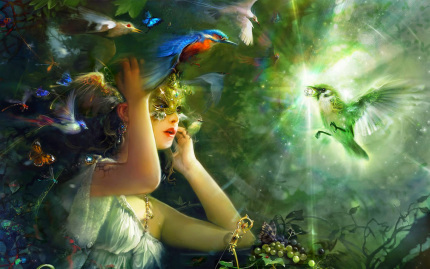
Yes, you read that right. For those of us in the know, we cringe when we see the word “trope” in a book review. For those of us scratching our heads and wondering what the heck I’m going on about, a “trope” simply means an overused theme in fiction, and some authors apparently devote entire series to using as many of them as possible. And they are more prevalent in certain genres than others (YA, anybody?), and fantasy fiction has been falling prey to them lately.
But just the existence of a trope isn’t necessarily a bad thing. Generally it indicates that a particular theme or idea is popular, so, as an author, you may consider including popular things that your audience may be asking for. (If, you know, you want to actually sell your work.) However, this can also backfire very easily, when too many people write a trope in too short a span of time, and then the audience gets tired of it.
So, how can we authors take advantage of some tropes that may actually a) fit our story, b) we in fact like them? Here are a few thoughts on how to shake it up and stay true to our cause of producing unique work.
To begin with, remember that no one’s book is truly original, and that’s totally okay. We’re all influenced by the storytellers to come before us. We’re living in an advanced age of humanity, there’s a lot of influence to draw on. Don’t beat yourself up if you can’t seem to come up with something that hasn’t been seen on this planet yet. It depends on what you do with your influences, as to how unique your writing is.

Tried-and-true tropes that just need a different spin to still be successful:
Examples: the love triangle, insta-“love”, the chosen one (or, the “special snowflake”), bad/absent parents, and throwing every kind of tragedy conceivable at the hero/heroine.
Okay, let’s start with the love triangle and “insta-love.” When it comes to YA fic, these can be dangerous if portrayed in a way that suggests falling into complete love with the first person you lock eyes with at a party is normal, or that not only will you have one potential boy/girlfriend but you’ll fact have 5, all fighting over you. Is it impossible to believe that — especially in close social circles, as teens tend to have — more than one person would have a crush on the same girl/boy? Nope, not at all. But does this inevitably result in pistols at dawn? Good grief, no. We’re in the 21st century here. And might you be at a party only because your friend begged you to go, and over by the punch bowl you see a totally attractive person with a great smile and a fantastic dress sense, and in your head go, “OH MY GOSH, I LOVE THEM”? Yeah, of course. But that does not mean they’re about to propose and buy you a sailboat and pounds of chocolate and novels. And it is very important to make the difference clear to impressionable young people.
In The Order of the Twelve Tribes, I included romantic situations that the adolescents involved are possibly over-thinking how serious it is, and that’s actually quite a healthy lesson for teens. (Being the parent of a 14-year-old myself, I am definitely concerned with him not planning on marrying his very first crush.) Through the rest of the series, I’ll be exploring how the couples grow as individuals, learning about themselves and what they want, along with how to be a good partner. (Which should lead to a lot less dysfunction in their adult lives…)
Anyway, so how about instead of always having one girl and two boys making fools of themselves for her affection, let’s try — a) the girl tells both of them to go away, b) after she strings them along, the guys tell her to shove off, c) it’s two girls after the same boy who ultimately decide being friends with each other is more valuable.
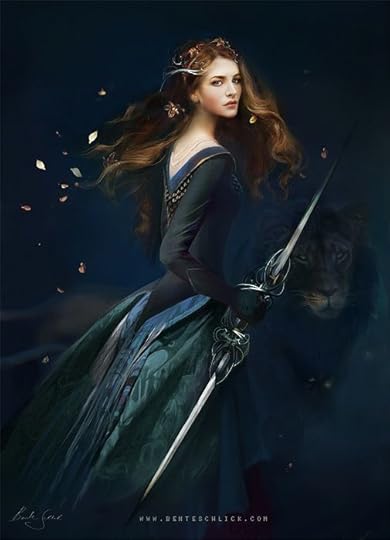
Moving on to the dreaded chosen one, aka the special snowflake. It became a big deal with Harry Potter, and therefore a bit jaded soon after, as there were a plethora of trilogies or series (The Maze Runner, Divergent, Legend, Percy Jackson) released in quick succession focusing a variation on that theme. The unique thing about Harry Potter was that he didn’t know he was considered the “chosen one,” and had never thought of himself as anything special. Then he rose to the challenge, anyway — even though we found out in book 7 that it was never confirmed Harry was the chosen one.
Now, that’s a twist. So, how about more twists? Instead of the chosen one being groomed from birth (think King Arthur), he/she — a) avoids their “destiny” at all costs, by running away to a far land to herd llamas, b) turns out not to be amazing and powerful but really rubbish, c) was mistaken for the real fated hero, but decides to give it all they’ve got.
We’re up to bad or absent parents. Come on, folks, let’s do away with the way there are never any consequences for neglectful parenting in fiction — a) the family is irresponsible, so your protagonist ends up in a loving foster care situation, b) the dysfunctional home life results in a tragedy that creates intense character growth, c) we think the parents may be dead but are in fact alive, and simply in hiding to protect their offspring.
(For The Order of the Twelve Tribes, I went with the last. And for the record, when push comes to shove, she steps up to the plate.)
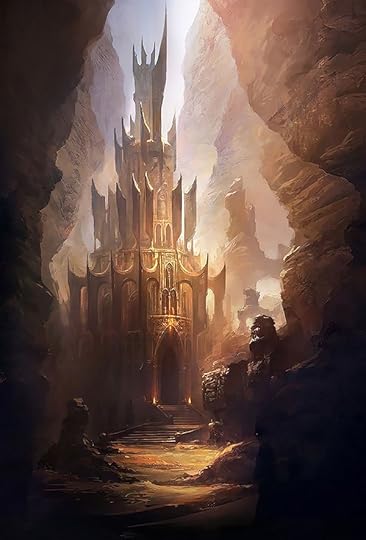
And, please, let’s do stop throwing every kind of tragedy conceivable at the hero/heroine. I wrote an entire post earlier this year about how important happy endings are, even to dystopia and fantasy. (You can use the search bar to find “It Is Not Too Much To Ask For A Happy Ending” if you missed it.) Anyway, my view is that, while it’s (unfortunately) realistic to have some bad things happen to your characters, readers need to have hope and the opportunity for life to be okay for these fictional beans they’ve grown attached to. (And I will be writing this way, too. There will be losses, but not the absolute entire end to the complete and total universe. There will be love and peace as well.)
So, instead of endings like in Mockingjay and Allegiant, what about — a) broken friendships are restored, b) only half the major characters get killed (remember, most of them survived in The Deathly Hallows), c) after winning the war, rather than becoming a devastated husk of a former human being, the narrator quietly retires to a farm to raise teacup pigs and does not suffer from PTSD for the next 743 years.
Trust me, your readers will thank you.



May 11, 2017
A Few Words on Children’s Books
[image error]
So, as part of my degree (Early Childhood Education), I had to take a course in Children’s Literature. Really, not that surprising when you think about it. But what did surprise me was that, on day one of the class, the professor said, “Just because it’s literature for children doesn’t mean it’s good literature.” And when you start to look at the criteria for determining the writing/reading quality of a book, this makes a lot of sense.
Throughout the 20th century, there was much debate among families and educators about what counted as “good” children’s books. As a parent (before I was a teacher), this is a subject that was constantly on my mind in bookstores and school book fairs and libraries. There really is a lot to consider. Is the style age appropriate? Does it fit with where your child is developmentally? Will the content have lasting meaning? Much more than just, “Oh, these pictures are cool.”
And even books are not one size fits all. Autistic children may be very picky readers. They may take issue with everything from the look of the illustrations (are they too bright? too unrealistic? too simple and boring?) to the content of the text (if it makes them sad, will they actually have a breakdown over it?).
When I was younger, it didn’t take me long to figure out that I had a very sensitive constitution, and reading about certain topics were just plain off limits (for example, animal cruelty, war, people with terminal illnesses). This means I do not (and probably never will) read publications such as Stone Fox, The One and Only Ivan, Bridge to Terabithia, and Shiloh, and most likely shall continue to avoid them all at costs. (We were assigned The Giver one semester, and I literally threw it at the wall after 50 pages.)
But, (thankfully), there are still plenty of books that I can read to my own kids, that I think are great for all kinds of children, and that I’d definitely recommend as a parent and as a teacher.
Exhibit A: Dr. Seuss.
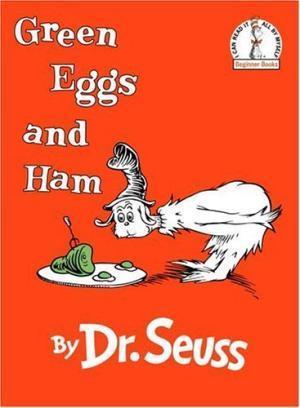
Anyone who says Dr. Seuss is “outdated” because “nonsensical wording is harmful to the development of our children’s brains” has obviously never interacted with an actual human child. They do nonsense things on a regular basis. They use words that do not exist in mortal tongues. They take pride in this behavior. So, quite frankly, we should build more statues and grant more awards to the man who figured out just how to speak their language, and then was kind enough to write it down so that parents could get in on the gig.
Exhibit B: Diversity stories that focus much more on the story than “look, it has diversity”.
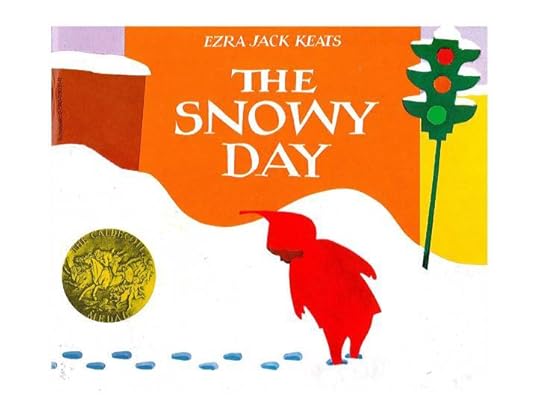
In the mid 20th century, a whole lot of picture books were about Johnny and Jane, riding their bikes in the field while Daddy went to his office job and Mommy baked cupcakes all day. Simply not relatable to a ton of the American population after about 1900. So, when picture books including all the ethnic groups and city life and single parents who were janitors started becoming a real thing, many people were happy about it, as they should be. Books that simply represent different cultures or societies as a natural part of the story (like the works of Ezra Jack Keats, or the Knufflebunny tales) are very valuable to increasing literacy and growing tolerance.
Exhibit C: Animals behaving like people to teach kids everyday lessons.
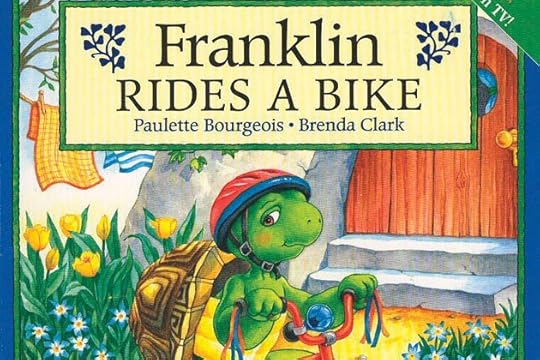
One of my personal favorites for White Fang was Franklin. This little turtle was just an average guy, trying to get through very normal mishaps like a misunderstanding with a friend, not wanting to follow a rule, or being nervous about starting something new. Now he’s considered a classic, along with the creations of Sandra Boynton and Suzanne Bloom, all still very relatable choices for internet-era munchkins. The fantastic thing about using animals instead of people is that kids from all sorts of backgrounds connect to the feelings and situations, without there being an obvious ethnic/cultural gap.
Exhibit D: Books that use metaphors or symbolism discreetly.
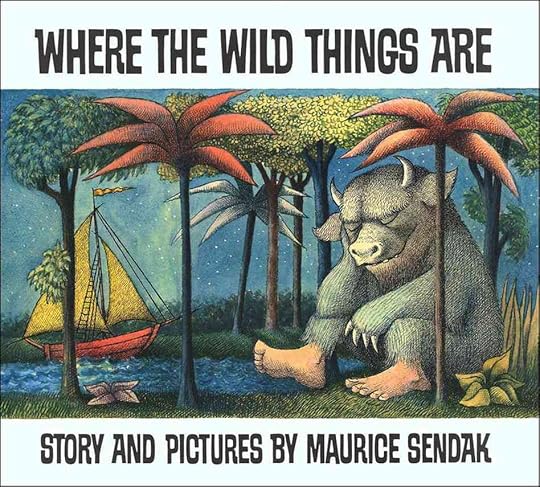
Little kids don’t like allegory. They don’t understand it, it doesn’t have meaning, and it often leads to MG/YA students resenting whole genres (or even reading itself), for adults trying to force it on them. That’s why a story like Where the Wild Things Are — which targets Max’s bad behavior and his desire for control, the consequences of his breaking the rules and his plan to escape, his eventual acceptance of the situation, and his mother’s forgiveness of the mischief, all within the idea that he may or may not have visited a remote island of monsters — is brilliant.
(And if you weren’t aware of the deeper meanings to that story, find a copy and re-read it for yourself.)
Exhibit E: Characters that have ongoing appeal, and therefore, significance to many generations.
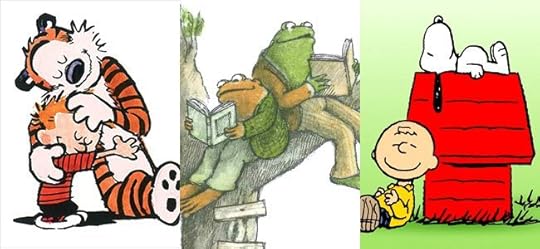
Just because Winnie the Pooh and friends first appeared nigh on a hundred years ago doesn’t mean kids today don’t understand the silly ol’ bear. The same goes for so many other “dated” tales, especially where the focus was always much more on things like friendship, problem solving, and considering the feelings of others, than the time period the original author wrote in. After all, there are some things we hope to teach every generation, regardless of whether they’re living in the 1980s or the 2020s.
[image error]


May 10, 2017
Sending Out The Call

…Or, The Post That May Get Me In A Lot Of Trouble. And yet, I’m fairly sure that won’t stop me from going forward.
Lately, I’ve been coming across some pretty intense (and very important) discussions on “Christian media” and whether it’s actually effective, helpful, or even valuable to its own audience. And these discussions are happening among believers in the Christian doctrine. Since I count myself among that set of spiritual principles, but also as an artist, I’ve encountered several problems with “Christian” entertainment before. And this is something we need to talk about.
A lot of Christian musicians, writers, and other sorts of artists feel extreme pressure to only produce certain content in their art. If they cover a “taboo” topic, or include an image or wording that some in the Church find offensive, they are worried about being branded as a “heretic” or a “blasphemer.” (Now, is it just me, or aren’t we past the time when Catholics and Protestants put each other to death in the city square?)
Apparently, labeling something “Christian” means that it will already cover the issues of Biblical teachings and modern churchgoing lifestyle that most believers should know and/or generally follow. And often it seems to point a finger at those in the denomination or the faith that “aren’t measuring up.” It isn’t affirming of the message that the Messiah came to die for all of us, while we were still sinners. Nor does it present anything appealing or encouraging to non-believers.
Personal note time: I don’t read Christian fiction anymore, because I simply can’t relate to finding a husband being absolutely more important than anything else in life (even more than God, apparently); or to non-believers always being presented as drunks or child abusers or corrupt in business (since plenty of non-Christians are in fact very moral and very nice people); or to believers never getting angry or making a mistake that wasn’t forgiven at the drop of a hat, just because they prayed for God to show the other person they were “being unreasonable” (ahem…).
Not that absolutely all Christian fiction is this bad. But way too much of it is. So I’d rather spend my precious free time reading something that may not point to a spiritual lesson or spell out something of religious importance, but that provides lots of thought in the areas of growth and love.
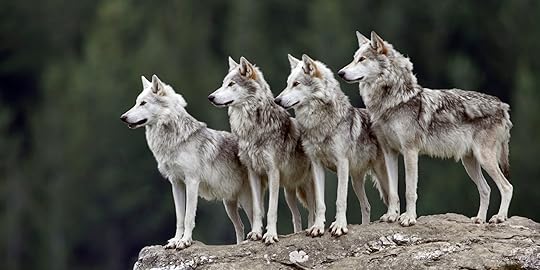
As artists, who are supposed to be creating and finding new and innovative ways to share our art (and our passion), we are continually being put in a box. As I attempted to finish the final draft of Volume 1, I explored the possibility of trying to get a Christian publishing agent, and was more than a little horrified by what I found. Too many companies informed prospective clients that “good Christian literature does not include swearing, sexuality, violence, any mention of other religions, the supernatural (even angels and demons), or reference other literature/music/art that is not Christian in origin and nature.”
Excuse me?! Have any of these people actually read the Bible, and discovered just how much violence there is, references to who “lay” with his wife, mentions of about 17,000 other cultures and sets of beliefs, and TONS of angels and demons?! And isn’t one of the major teachings of the New Testament that part of LOVE is respecting people who have a belief system/lifestyle/background you don’t agree with? Didn’t Jesus of Nazareth say that you could go to temple every week, follow all the instructions of the priests, and still be a sinner with a wicked heart if you ignored the beggars and the cripples on the street or didn’t give the repentent prostitutes a second chance?
This type of attitude among a lot of modern churchgoers is why I also don’t write Christian fiction. And believe me, I have worked way too hard on my “baby” to see it shoved into a corner of “not worth reading” by so, so many if it was labeled “Christian fiction.” Especially considering that most of the Christian publishers out there would call it “blasphemy” because it’s in the fantasy genre. (Haven’t they ever heard of JRR Tolkien and CS Lewis?!)
Not that my series will be known for loads of profanity or explicit sexual references or graphic violence. But, somebody needs to tell me why, just because I write about faeries and unicorns and dragons — and angels and demons — I can’t call myself a Christian. And they need to have evidence that trumps the Gospels, which proclaim that my Savior came to die for autistic fantasy writers, too.
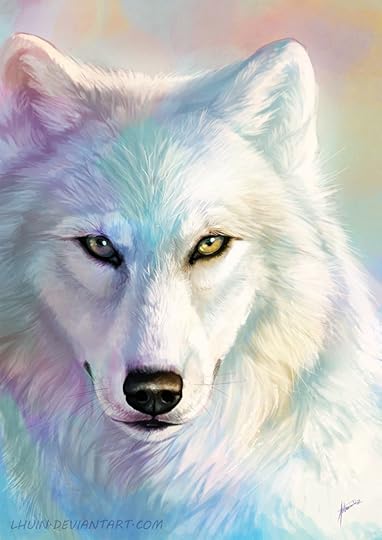
Too much of the current Christian entertainment market is full of cheesy, unrealistic, dull, and even offensive portrayals that need to stop. I know for a fact I am not the only one who feels this way. That I am not the only one who feels the world as a whole needs to return to a higher moral standard, and that faith needs to be allowed to play a greater role than just “preaching to the choir.”
I don’t want to drop anybody’s names, in case you aren’t prepared for that; but if this is an issue that you face, as a believer and an artist, please raise your voice. To those of you who already have, thank you. We can band together to develop a place where our art is allowed to exist without discrimination, to reach all sorts of people through love of a shared interest or hobby, without in-fighting or unnecessary restrictions.
So, I am sending out the call. Let’s hear you.
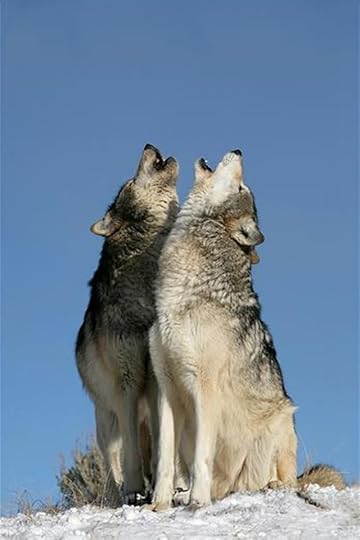


Mothering and Writing
[image error]
So, this was the next most-voted-for on my Twitter account poll. For those of you who don’t follow my Twitter feed and may be wondering what the blazes I’m going on about, I’m referring to the fact that, while I was sick, I truly had no energy/time/inspiration, but knew that eventually — like, when I was no longer sick — I would desire to post something on the blog (if nothing else, so you all knew I was alive). Anyway, I decided that the honorable tradition of asking your readers really wasn’t such a bad notion; so I placed a poll on Twitter — “what do I post about next?”
And, here we are: *mothering and writing*.
As most of you know, I am beset on a daily basis by two underage beings, one small, one taller than me, who are both under my charge and my jurisdiction. In human speak: I am a parent. (To three if you count the cat.) So, I spend a fair amount of my time cooking for the small thing, cleaning up after his destruction, making sure he participates in his physical and speech therapy home sessions, and that he doesn’t conquer Mars without a signed permission slip. (Oh, who are we kidding, Muffin sets no score by what I grant him permission to do.)
And White Fang, when he’s not in school, needs constant reminders to finish his chores, finish his homework, eat something, and prepare his dirty laundry for the washer, because he is a teenager and Minecraft is more important than anything else. And so, between all of this, there are days when writing (which I have now turned into my livelihood) becomes the challenge.
How do you balance being a parent with being a writer? the unnamed pollsters were undoubtedly yelling at their screens (and praying for answers they could use in their own lives). Well, I truly hope I don’t cause more yelling, but the fact is, not one thing works for everybody, and I can only relay what has worked (generally) for me, and honestly wish you blessings on your schedule and accomplishment.
[image error]
First, it’s all about time management. If your kids are in school, then you have the chance to dedicate the morning or the afternoon (on that day with no errands or chores or appointments) to writing, or editing, or goofing off on the internet and calling it “research.” But, no, seriously, when you have the opportunity to work, don’t squander it on trying to find the best middle name for your protagonist or determine what breed of dog their great-uncle owned in 1989. Just write — the major stuff, like the plot — and even if you end up cutting out a lot later, know you’re at least you’re making progress.
If your kids are still small (like Muffin), and need more attention than the ones who walk and talk and can do a lot for themselves, take advantage of naps, or find a babysitter for Wednesday afternoons — just write when you can. If you need to type everything because of ease or quicker achievement, do so. (Personally, I prefer to start with paper and pen, because working around the random scribbles when a pen was stolen, or an occasional grubby fingerprint on the page, is a lot easier than trying to cope with the computer being turned off when you’re halfway to your word count goal for that day.)
If you can, take a short vacation by yourself, and create your own writer’s retreat — send the kids to grandma’s once a month, or go to a favorite cafe once a week. (The latter sort of thing never works for me, because I can’t concentrate when I’m around other people vocally debating whether they want mocha or vanilla shots in their espresso.)
[image error]
Something that really helps me organize and plan my schedule and my plot is participating in Camp NaNoWriMo (which isn’t the contest, but more like a workshop). You can find like-minded individuals to bounce ideas off, whine to, or cheer each other on. Thank heavens it’s only twice a year ( because I also need to do marketing, and blogging, and take showers and even leave the house once in a while). But every few months, it’s important to make sure I’m on the right track with my WIP, and not wandering off into Neverland following a totally unrelated minor character or origin story for their pet lizard.
And it’s a really big deal to remember why you write. Is it a hobby, something you can put off for weeks at a time, and honestly be all right with? Or is it a sort of calling, a venture that you feel is necessary to include in your life? Do you dream of seeing your work in print, for the world to share? If so, then you truly need to put in the effort.
[image error]


May 9, 2017
Author Q & A
[image error]
Just what it says on the tin… These are from my Goodreads author page.
Where did you get the idea for your most recent book?
Watching too much “Supernatural” and reading too much “Warriors”. (Honestly.)
How do you get inspired to write?
Mostly by what I read and watch. But also by song lyrics and things like paintings and photographs. Visual beauty.
What are you currently working on?
Volume 2 of the series. (As yet untitled, because I have the decision-making power of a sleeping llama.)
What’s your advice for aspiring writers?
Just keep trying. Don’t give up. Even when you feel like everything you produce is utter rubbish, don’t doubt your ability to create something important and special. It does take a lot of literal sweat and tears (and blood if you count papercuts on your hardcopy editing manuscripts). Listen to Churchill – “Never, never, never give up.”
What’s the best thing about being a writer?
Is there? Kidding. The creation of something that was in your head to page and text. Seeing your fictional world come alive.
How do you deal with writer’s block?
Scream a lot. Throw a pillow. Rue the day you decided to attempt this venture.
No, seriously, step away from your WIP. Maybe for a long time. Try writing something else, or nothing at all for a bit. Try reading new material, or watch a fun movie – distract your brain.
What mystery in your own life could be the plot for a book?
Why my husband loses his glasses so frequently, and where do they go when he’s sure he set them down elsewhere than the spot we find them in.
[image error]


May 6, 2017
My Writing Influences
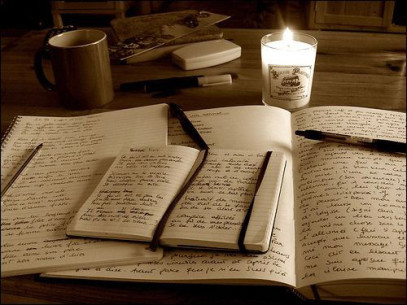
Good morning, everyone! Per the poll on my Twitter account, oh, only about a hundred months ago (no, really, about a week, I think), I will be selecting the next few blogging topics based on the feedback from those of you who actually read these posts!
The top choice was *my writing influences*. So, I present you with the answer to said subject. (Disclaimer: I did warn you ahead of time that you asked for this…)
Cats. And other animals, but a lot of cats. The tricky thing about trying to write about animals is that, as humans, we can only get inside their heads so much. Or, so I believed.
For a long time, I’d wanted to include talking animals in my writing, and my attempts fell flat. Then I started reading Warriors by Erin Hunter. I’ve waxed poetic plenty about that series in other posts, so I won’t go full throttle here, but suffice it (for the sake of this topic) to say that it completely changed my mind on what was possible.
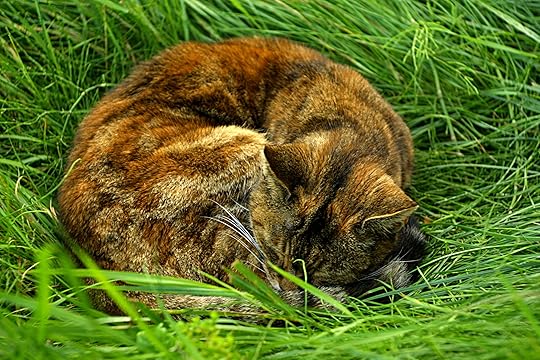
Mythological creatures and tales. Since I was old enough to read on my own, I was hunting down stories of the ancient Greek legends, Grimm’s fairytales, and pretty much anything involving unicorns, dragons, and mermaids. I gobbled up almost everything I could find centering on all the species of faeries and animals that don’t exist. I’ve adapted what parts of the legends work best for my story when it comes to The Order of the Twelve Tribes.
Music. I do have a writing playlist (which changes to fit with my current WIP). As those of you who have read Masters and Beginners will know, I’ve placed song lyrics at the start of each chapter throughout the novel. These are homages to my playlist while I was writing/editing Volume 1. So, that will be different in each installment. But it gives you a pretty good idea of what I’ve been listening to.
My previous life in England, and all the English authors I’ve read since forever. Charles Dickens, Peter S. Beagle, Douglas Adams, Neil Gaiman, Terry Pratchett, JK Rowling — it’s a kind of a small miracle there are any American authors on my shelves. (And, yes, there are a few.) But these Brits developed my craft, the type of pacing I follow, the use of (hopefully) clever humor, and reinforced my passion not just to tell a story but to tell it well.
And since I spent 4 years in Great Britain, I’m just used to thinking in both American and the Queen’s English at the same time, and so many of my characters started morphing into people who originally came from London/Cornwall/Oxfordshire/Edinburgh, and I didn’t fight it.

Doctor Who. I would flat out be lying if I claimed my writing hadn’t been influenced by Doctor Who. (I have at least three TARDIS references in Volume 1 alone, for the love of Gallifrey.) And while it may seem a bit too ambitious, I truly hope that some day, in some way, I can create something on a parallel with the beauty of some of the early episodes of the show’s reboot.
Warehouse 13. If any of you have seen that TV show, you’ll probably recognize bits of the Warehouse in the Annex, and the sort of structure of the Regents in the idea of the Council and the Order’s hierarchy. (And this is as close to spoilers as I get, I swear.) I’ve had a few really favorite programs, but few have truly stayed in my heart as much as DW and WH 13.
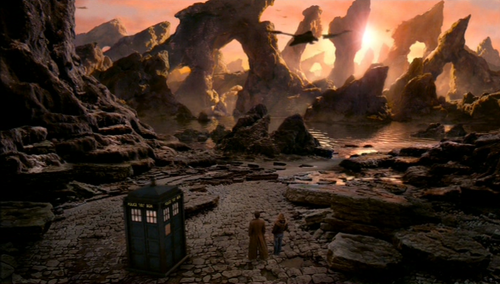
Theories on lost knowledge or cultures. Again, for those of you now familiar with the plot of Masters and Beginners, you’ll know that I’m fascinated not only with the mythology and legends of different civilizations, but you may have noticed that I’ve dug pretty deep to find some unique twists for my story. My ideas about the origin of faeries and the Nephilim are actually not completely my own; they’re developed from some very old (think the Middle Ages) and rather obscure Celtic and Hebrew lore. But I took the jist of a lot of research and bent it and molded it until it was shaped like The Order’s world.
Autism. It’s impossible for me not to see life through the lens of autism. And since I’ve read about 62% of the YA/fantasy novels ever printed, I can tell you with some authority that there really aren’t that many healthy, realistic depictions of autism out there. So I decided to write my own. In Volume 1, I’ve introduced not one but two characters on the spectrum (one it’s stated early on, the other will probably be a surprise to most of you). In Volume 2 and beyond, there will be a much greater focus on them.
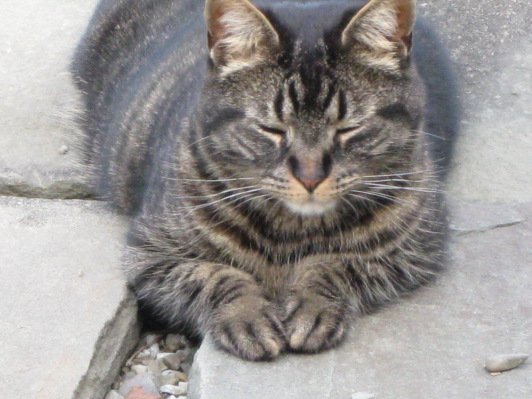
My furry angel. You’ve all seen this picture by now, as Toby is my muse for the artwork on the series. (Feel free to ooh and aaw over his cuteness.) Having a real life model for cat behavior was very helpful for putting together the characters of Jules and Sammy.
Pretty pictures. It sounds almost trite, but if you think about it, it’s really important to surround yourself with beauty when you’re hoping to be creative — especially when you’re writing about really serious things like discrimination and losing loved ones and staring down your own imminent demise. (And here you thought I was just writing about fun and glittery faeries and talking cats!) It helps to remind you that — as Samwise Gamgee would say — there is good in the world, and it is worth fighting for.
So, there we are! I hope this appeals to your sensibilities of what you wanted to know about what influences my fictional work! Don’t forget to put a specific question for me in the comments for next week’s post, Author Q & A!



Daley Downing's Blog
- Daley Downing's profile
- 36 followers



